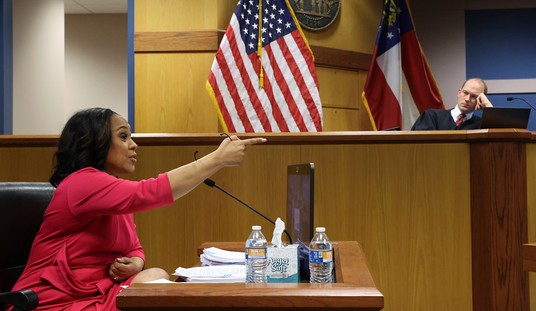Terry Teachout comes to bury Arthur Miller, not to praise him:
I wonder how much attention would now be paid to Miller if he hadn’t married Monroe, and if the House Un-American Activities Committee hadn’t made the mistake of subpoenaing him in 1956 to testify about his Communist ties (which were extensive, though he always denied having been an actual party member), thereby bringing about his citation for contempt of Congress when he refused to “name names.” The one made him a pop-culture footnote, the other a liberal icon.
The irony is that the smartest critics of Miller’s own generation, virtually all of whom shared his left-wing views, held his plays in a different kind of contempt. Back then he took his roughest beatings from the likes of Eric Bentley, Mary McCarthy, Kenneth Tynan and Robert Warshow, who found him heavy-handed and insufferably preachy. Tynan, for instance, wrote that “The Crucible” “suggests a sensibility blunted by the insistence of an outraged conscience: it has the over-simplifications of poster art.” Bull’s-eye.
* * *
Times have changed, and today’s more stringently politicized critics and playwrights seem willing to overlook Miller’s limitations because he thought as they do. “As a political figure, he was a progressive man, but never doctrinaire,” Tony Kushner said last week. “There was a simplicity, and humbleness, and decency in his work.” Some of this is true–Miller was “progressive,” and his plays were simple–but if there was anything humble about him, it escaped my attention. He was a man of limitless self-regard who confused the state of Broadway with his latter-day inability to get his new plays produced there: “A new ‘Crucible’ could not be produced on Broadway today, nor a ‘Death of a Salesman,’ either. . . . Is this situation satisfactory for what purports to be the main stage of the richest country in human history?”
It will be interesting to see how long it takes for the fanfares to die away, and no less interesting to see whether any of Miller’s plays outlive him. Most are already deservedly forgotten, but I expect that “Death of a Salesman” will continue to hold the stage, though not because it is beautiful or intelligent or provocative. It is, rather, sentimental, and sentimentality always goes over big in the commercial theater, so long as it’s disguised as realism. More important, “Death of a Salesman” has a coarsely compulsive power that somehow manages to mask its aesthetic deficiencies, or at least render them momentarily palatable. That’s the mystery of theater: It’s all about what works, and like it or not, “Death of a Salesman” works. But it’s no “Lear,” just as Arthur Miller was no Shakespeare, and anyone who thinks otherwise is as lead-eared as he was.
Read the rest. For more on Miller, check out this New Criterion piece from 2000, and Jacob Weisberg’s 1999 piece on the then-latest revival of Death of a Salesman.
Update: Betsy Newmark also has some thoughts on Teachout article, and leftwing Miller-worship in general.










Join the conversation as a VIP Member